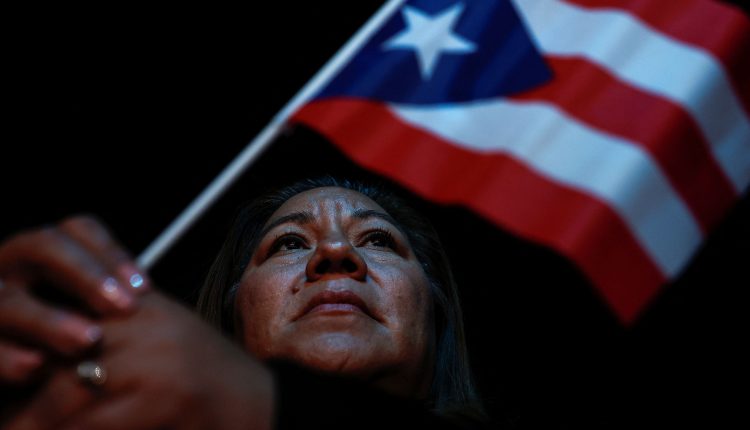
The gap closes between hope and the past in Puerto Rico
Scarcely a few days before the November 5 election for the governorship of Puerto Rico, there is a surge of hope that drives the real possibility of change in the way of governing and administering the political affairs of the nation and the construction of new paradigms that break with past ways of governing and democratic participation, opening the way to mental decolonization and free determination for the Puerto Rican people. The Alliance forged between the Citizenship Victory Movement and the Puerto Rican Independence Pary after the 2020 elections open the way to this possibility.
Two surveys were conducted by the newspaper El Vocero: the one in July indicated that the pro-statehood, Republican, New Progressive Party (PNP) would obtain 43% of the votes, versus 24% for the pro-independence candidate of the Alliance, Juan Dalmau. Nevertheless, in the survey conducted October 28, the candidate for annexionism, Jenniffer González, received barely 31% of the voting intention compared to 29% for the Alliance’s Juan Dalmau, which, considering the margin of error in the sample, can be considered technically a draw.
This change in electoral tendency can be strengthened by events that have been developing in the last few days. As we mentioned in a previous article, there is a growing movement, at first slowly and now more intensively, of endorsement by political figures that in the past were important leaders of the pro-autonomy Popular Democratic Party (PPD). We mentioned the declarations by the PPD ex-candidate for Resident Commissioner in the 2020 elections, Rafael Cox Alomar, who published four opinion columns in the newspaper, El Nuevo Dia, which matured the idea of the irrelevance of his party in these elections and the validity of the “useful vote”, defended by them in the past to enchant some independentistas to vote for the PPD anddefeat the pro-statehood threat. In its new definition, the “useful vote” would be for the autonomistas to vote for the independentistas and avoid the victory of the anexionistas.
Hysteria of Puerto Rican annexationists and autonomists in face of new electoral reality
Cox Alomar is now joined by the engineer Ingrid Vila, former Secretary of Governance (a sort of prime minister) during the PPD administration of governor Alejandro García Padilla (2013-2016). In her opinion piece of last October 29 in the daily El Nuevo Dia, she wrote: “Both of these parties (PNP and PPD) wager on preserving a country and a government that are unsustainable, a government of exclusion and scams. The people on the street are going in a different direction.” Another notable figure is the former Senator (1992-2008) and former Secretary of the PPD, Eduardo Báez Galip, who said in his opinion column last October 31, also in the newspaper El Nuevo Dia: “I already voted [for the Partido Popular] and for Juan Dalmau,” adding: “Why Juan Dalmau for Governor? Because he has the capacity, the integrity and the political force to protect straightaway what I cannot protect due to my age. Also, I trust in his guarantee, his proven guarantee, his proven moral stature, that the issue of the status [of Puerto Rico] will be considered at the appropriate time.” Many others are also ready to support a transcendental change in the political history of the country.
Another unexpected factor in the equation of these elections was the folly of U.S. comedian Tony Hinchcliffe who, in a campaign rally for the Republican candidate for President of the United States, Donald Trump, said: “There’s a lot going on, like, I don’t know if you know this but there’s literally a floating island of garbage in the middle of the ocean right now. Yeah. I think it’s called Puerto Rico.” This unexpected utterance has provoked the massive indignation of the majority of Puerto Ricans, of those that live in the US – some 5 million – as well as of the 3 million that live in Puerto Rico, bringing to the surface one of the contradictions that the nationalist leader Don Pedro Albizu Campos characterized in the 1930s as “the Supreme definition: Yankee or Puerto Rican”, a sentiment that for years the political forces that have governed the country have tried to silence.
This event has motivated many Puerto Ricans in the U.S. to vote for the Democratic Party and its candidate Kamala Harris and others that had previously endorsed or voted for Donald Trump to express their remorse. This will also have consequences in Puerto Rico for the pro-statehood and Republican candidate Jenniffer González, since she and the Republican Party in Puerto Rico have assumed the posture of minimizing the issue and reducing it to the outburst of an individual and not a reflection of the racist, anti-immigrant and xenophobic policies of the candidate Donald Trump himself.
The Puerto Rican analyst and attorney, Leo Aldridge, lays out in an article published October 31 what he calls “the five keys to the victory,” referring to the Alliance. First, that young people go out to vote massively, and I would add, this is based on the consciousness that young people gained in the “Hot Summer of 2019,” when they drove the Puerto Rican governor out of the Fortaleza (Governor’s Mansion), and no less important, the influence of well-known artists such as “Bad Bunny”, René “Calle Trece”, Ricky Martin and others. Second, that those youngsters convince their adult relatives to vote for the Alliance. Third, that there is a massive movement of supporters of the pro-autonomy Popular Democratic Party to vote for the Alliance. Fourth, that the Alliance parties succeed in recruiting sufficient officials of the Electoral College so that they do not steal the election, a risk always present in a situation such as this. And fifth, that the supporters of the Alliance go out to vote November 5 with the conviction that they are going to win, and not come in second place. We shall see if Hope wins or everything remains the same.

